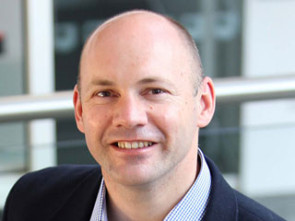
Professor Mark Brandon
Interim Pro-Vice-Chancellor, Research & Innovation
Biography
Professional biography
Professor Mark Brandon MBE
I am a polar oceanographer committed to research and education. My ambition and personal mission is to help as many people as possible understand our planet and the importance of the relatively remote polar regions to our climate and life.
In December 2020 I was proud to be honoured with the award of an MBE for Services to polar science based on my activities at The Open University.
In December 2023 I was honoured with the award of The Polar Medal for recognition of your outstanding work in the polar regions.
I have been a Fellow of the Royal Geographical Society since 2000.
My personal research is mostly based around the way the oceans interact with the frozen parts of our planet in Antarctica and the High Arctic. That affects us most obviously through sea level rise, and by altering our weather. Some recent work I contributed to on sea level rise was highlighted on the cover of Nature. You can find this on my publications page.
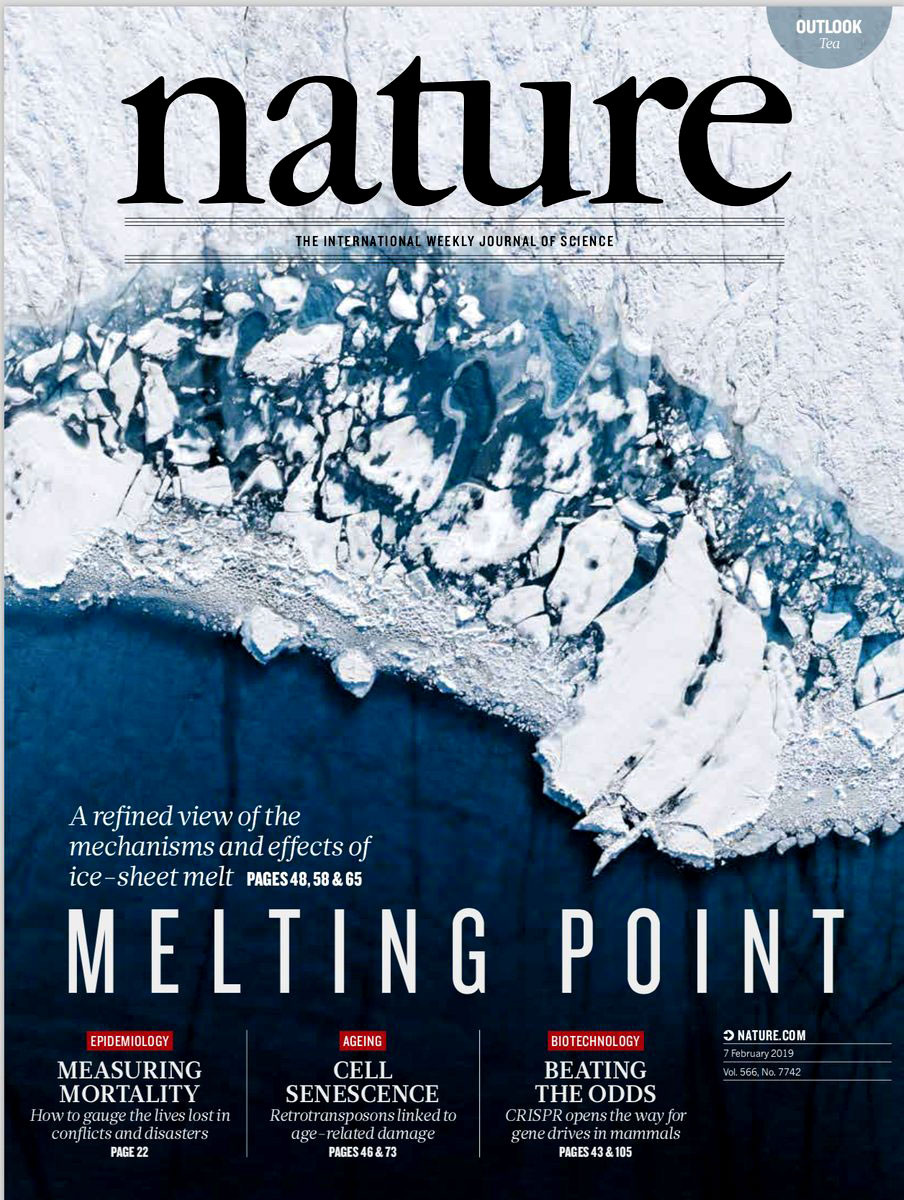
Edwards, T. L., Brandon, M. A., Durand, G., Edwards, N. R., Golledge, N. R., Holden, P. B., et al. (2019). Revisiting Antarctic ice loss due to marine ice-cliff instability. Nature, 566(7742), 58–64.
To date I have published more than 40 peer reviewed research articles. If you are interested citation metrics (and you believe that sort of thing) you could look at Google Scholar (h index 35 in December 2024) or Scopus (h index 31 in December 2024).
In Autumn 2020 I became a Natural Environment Research Council Peer Review College Chair, and to date I have been asked to extend my term in the role twice (2020-2025) and I am a member of the Antarctic Place Names Committee that makes recommendations for place names within the British Antarctic Territory (BAT).
Award Winning Teaching
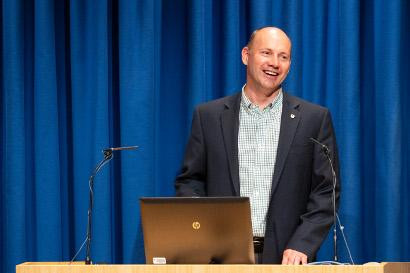
I have won six teaching awards for working on and leading complex multi stakeholder projects that change how people understand our environment, people and planet. As an expert communicator, I have developed the narrative of geographic knowledge in broadcast projects watched by more than 200 million people worldwide. In 2012 I was awarded the honour of Times Higher Education Most Innovative Teacher of the Year. By embedding my research in television series like BBC Frozen Planet I have created a world class research impact (Public debate, engagement and participation associated with the BBC documentary series, Frozen Planet).
If you want to see what I'm like as a speaker you can find my inaugural lecture on the OU website.
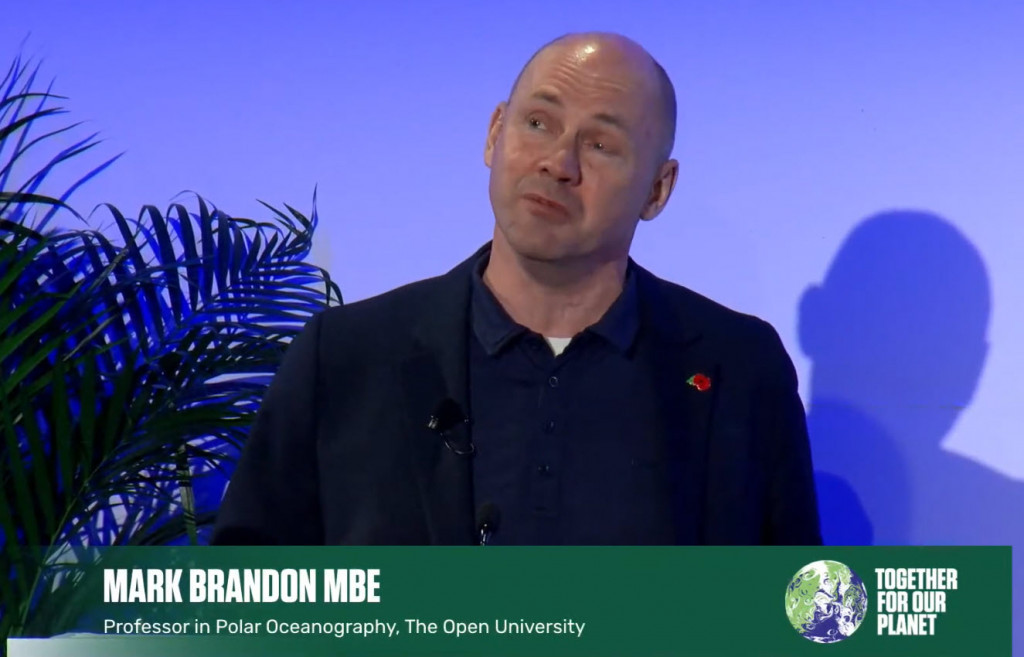
The five Open University Teaching Awards were for modules S175 The Frozen Planet (2012), S111 Questions in Science (2011), U116 Environment: journeys through a changing world (x2 original production in 2011, and 2020 for the module update), and finally U316 The Environmental Web (2004).
I have worked on the following major series:
Lead Academic Advisor BBC Frozen Planet (7 hours BBC Prime time) in 2012.
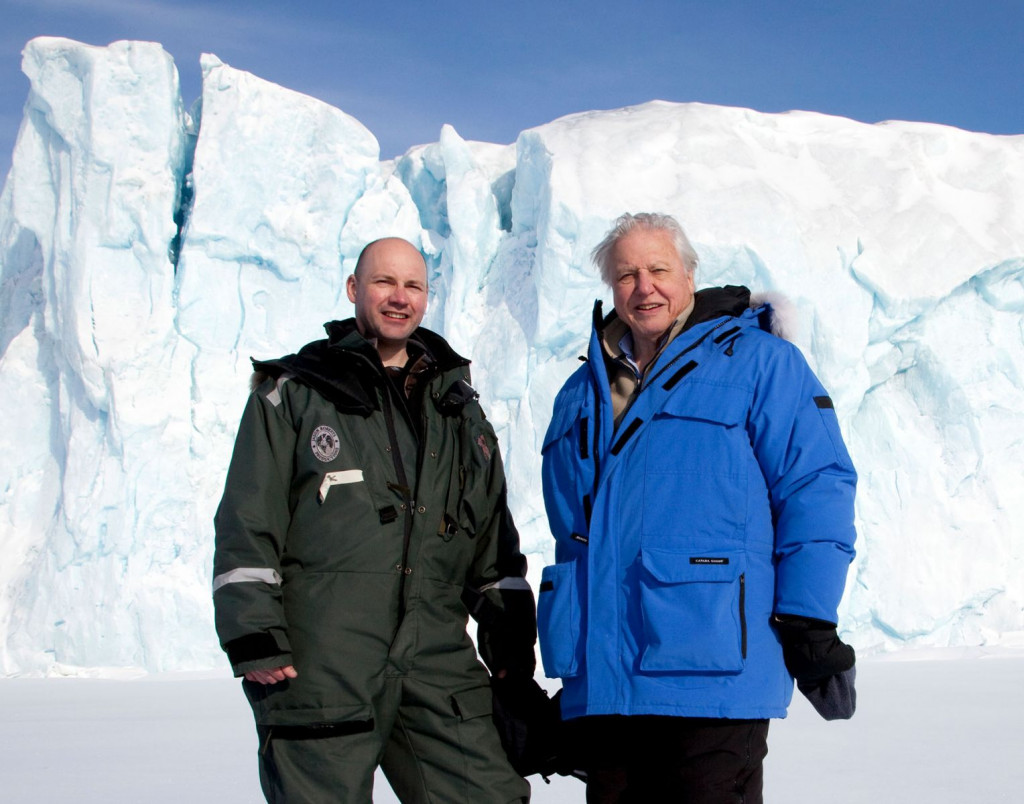
Mark Brandon with Sir David Attenborough filming in Svalbard for Frozen Planet.
Member of Open University Academic team on Frozen Planet 2 (6 hours BBC Prime time) in 2022.
Member of Open University Academic team on Blue Planet 2 (7 hours BBC Prime time) in 2017.
The two Sir David Attenborough Documentaries: Are We Changing Planet Earth? and Can We Save Planet Earth? both in 2006.
Coast Series 1-5 (45 hours BBC 2 2004-9)
Credited Academic on two episodes of BBC One Planet Earth. Ice Worlds (6.37 million viewers (24% audience share) on first viewing). Shallow Seas (7.32 million viewers (28% audience share) on first viewing) in 2007.
Academic Consultant for the BBC Two programme The Iceberg that sank the Titanic. Part of the Natural World Series in 2005.
Academic Consultant for the episodes Frozen Seas and Seasonal Seas of the BBC One Series Blue Planet. in 2001.
SPEAKING AT COP26.
I was proud to have taken part in an event at the COP26 event in Glasgow called Ancient Knowledge and Modern Thinking: Climate Perspectives in Folk Art on the 7 November 2021.
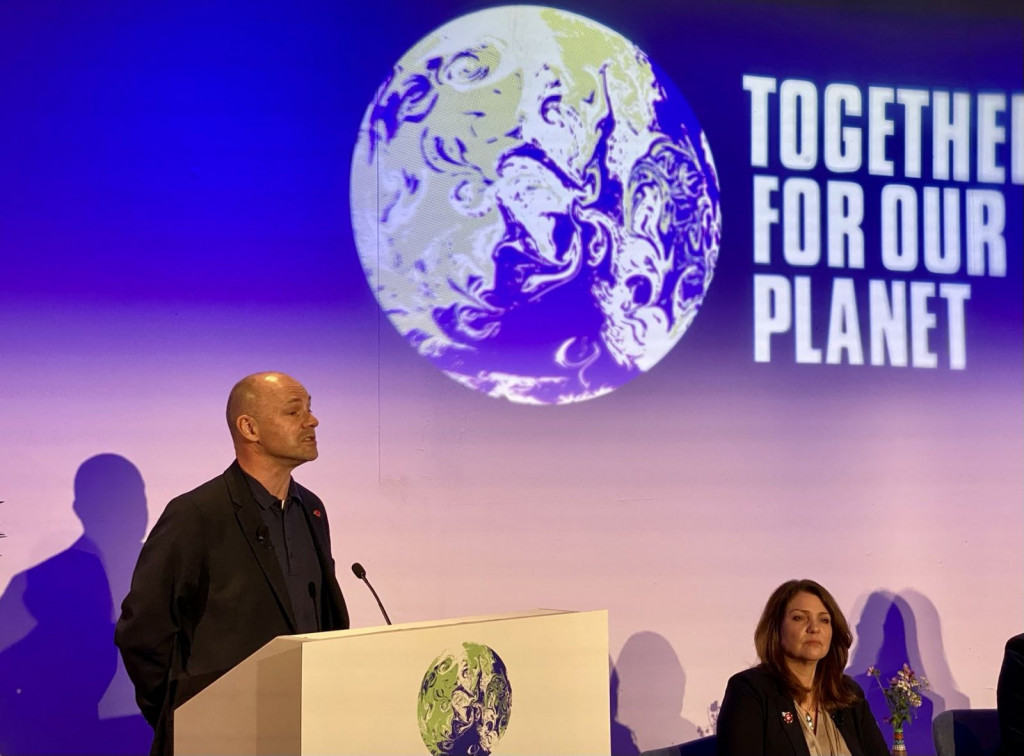
Photo Credit: Professor Steven Peake.
Research interests
I am very interested in polar oceans and the physical processes that happen in them, and to collect data for my research I have spent years working in the high latitudes; often in winter. My particular strengths have been cross disciplinary work and use of robotic and remote sensing technologies, and I am very interested in talking about polar science wherever I can.
I was the chair of the Program Advisory Group (PAG) for the Natural Environment Research Council (NERC) programmes RoSES and ORCHESTRA that comprised the bulk of UK ship based Antarctic Oceanographic research to 2022. I was also an International Member of the Natural Sciences and Engineering Research Council of Canada Discovery Grants Panel “1506 Geosciences”, and have served on panels for The Research Council of Norway.
I am a Standing Chair of the NERC Peer Review College, and have sat on many grant panels. I was also co-chair of the NERC Ice Sheet Stability Expert Group with Professor Tony Payne (Bristol).
I am media friendly and over the last decade I have provided many interviews. In 2017, I have appeared on BBC 1 News, BBC News 24, Channel 5, BBC Radio 5, and The World Service. In print, I have been quoted in New Scientist, Sydney Morning Herald, Die Zeit, the BBC News website, International Business Times, and the Business Spectator (Australia). I have written for Geographical (2016), The Conversation (When an Antarctic iceberg the size of a country breaks away, what happens next? 2014, 610k reads) and The Times (2003). I have also appeared on Radio 4 in: Saving Species as a panel member in a 30-minute live broadcast about BBC Frozen Planet, on Making History about icebergs and the sinking of RRS Titanic (both 2012) and More or Less giving expert commentary about the date the Arctic will finally be sea ice “free” (2017).
One aspect of my research was reported by the BBC in 2010 as Giant icebergs head to watery end at island graveyard here - and for a couple of days the story was one of the most popular on the BBC website.
Teaching interests
I have been a leading member of the Open University environment curriculum development team with major contributions to module direction, block/unit chairing leadership, and writing for the production modules:
S175 The Frozen Planet (10 CATS points),
S111 Questions in Science (60 CATS points),
U116 Environment: journeys through a changing world (60 CATS points),
S206 Environmental Science (60 CATS points),
S216 Environmental Science (60 CATS points),
U216 Environment (60 CATS points),
U316 The Environmental Web (60 CATS points), and
S808 Earth science: a systems approach (60 CATS points).
Teaching External to the Open University
In 2012 I was also a member of the Module team which put together the FutureLearn course Exploring our oceans.
External Examining
In 2018 I was trained by Advance HE as part of the Degree Standards Project to train academics in the activities required for external examining. I have delivered the Advance HE Professional Development Course with one outstanding colleague to approximately 100 academics who have joined the Advance HE External Examiners Directory.
From 2015-2019 I was an External Examiner for undergraduate programmes University of Southampton in the MSci and BSc Oceanography Programmes.
From 2011-2015 I was an External Examiner for the MSc Climate Change programme at University College London.
Impact and Engagement
You will find some videos of me lecturing on my external web site mallemaroking.org.
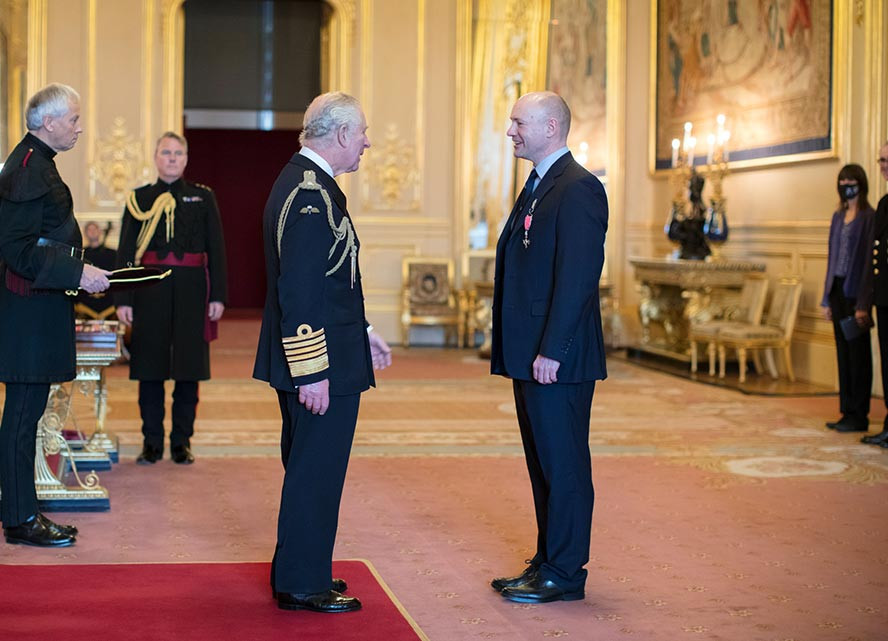
Personal Diversity Statement
I am a white male professor. I also am proud to be a Standing Chair for the Natural Environment Research Council. I was honoured with the award of an MBE in 2021, and the Polar Medal in 2024.
All those facts mean – like with everything - people make assumptions. Some believe they know who I am, my path through life and how easy it has been.
So, I thought I would lay some facts out.
I am a free school meals kid from a violent and broken home. My mother was an alcoholic lesbian, my dad merchant navy. When he was at sea, I had lots of “aunties”; when he came home it wasn’t great. I’ve many memories of clearing up vomit after my mum, and the collateral damage around that. Home is not always the same as "safe".
My mum couldn't cope and abandoned my sister and I in an ice cream shop on Green Lanes in Dagenham. I was 8. The ice cream shop was called Rossi's. The courts decided my mother was unfit and my dad got custody. A dad getting custody today can feel unusual; this was in the 1970s. If you’re interested Radio 4 made a programme about our childhood in the early 2000’s.
I went to what some people would call a sink school in Dagenham. To me it was my school.
I wasn’t in the top class for anything except maths. In most subjects I was average to OK, for some I was exceptionally poor – I failed English Language O level (the GCSE of the day) three times before eventually passing. There were 2100 kids in my school, about 360 in my year. I was one of only two in my year who went to university at age 18. Imagine today a secondary school that only sent 0.5% of its students to university.
Of course I was first generation in my family to go to University. I went on a coach, on my own, with my borrowed suitcase. For the first time I saw the difference between intelligence, and education.
All those kids I was at school with who never had the opportunity at 18.
My old school is now very good, and succeeeding for the students in a way that never happened when I was there.
Whilst at university both my parents died before the age of 60, my mum of TB after a spell in Holloway Prison (a classic disease of the poor alcoholic), and my dad of heart and multiple cancers. Both left me everything they had, which turned out to be nothing.
I have always been independent, and I still am. I don't think I had a difficult childhood – it was just what I experienced. I certainly have no resentment, anger, or jealousy. Everyone has their own story, their own pathway, and of course their own challenges and I’m really not interested in comparing with anyone.
There is no definitive explanation for how I got to where I am now. I am determined, I am focused, I am pretty good in cold weather. And I've had some good luck. Maybe that balances my earlier experiences? Others can (and some will) add their own explanations. I have, for example, been told that my current position shows how easy it is for some people to get on. I cannot comment on that point, and because I'm not a fan of autoethnography I am not going to try and be insightful.
It doesn't escape my notice that as I grew up in a poor part of central London as a teenager at the time of the Brixton Uprising, whilst I had my interactions with the Met that I'm glad to forget, I was never harassed by them, and I was never stopped using the sus law. I think about the effect that must have had on people more now.
I had a couple of teachers who challenged me (shout out for physics teacher Mr Harper, and applied maths teacher Mr McDonagh). I had some opportunities that came up at the right time. I have had some incredibly supportive and brilliant management and leadership from people who really understood what they needed to do to help me do useful things. I won't embaress them by naming them but if they find and read this, they know who I'm talking about. And I've had my share of bad management and leadership.
However things look, it's not been all roses. I'm sure that applies for nearly everyone.
The British Antarctic Survey interviewed me four times before I got a job with them, and during that time I worked as a labourer in the London Docklands. Looking at my files I can see I've applied for 20 academic jobs since then. I was offered one. For one senior role, I was told the sift panel wanted something different from what they had previously, and verbally I was told "the feeling was we don't want another standard white male professor". I respect that, and my career demonstrates I'm committed to promoting and enabling diversity. At the same time I hope I never make those lazy assumptions about what a diverse workforce and population is. To me diversity includes characteristics that are not so obvious such as sexuality, neurodiversity and social class.
The second punchline to that story is that they did appoint a "white male professor" to the role. I'd have felt better if they said outright "you're not our person", but that sort of experience is common and I suppose they thought they were being kind.
I will always remember the intelligent people from my secondary school who couldn’t go to university at 18 because they hadn’t got the grades, and I will never confuse education with intelligence.
My University is filled with students from across society. Some with paths like mine, many not. We are different, and we have, for example, more disabled students than many UK universities have total students. Being open is very important to me and so many of my colleagues. I’m proud to work for The Open University, and I'm there for social justice, equality and equity.
And whilst education can be an engine for social mobility, it is not the only thing.
My email is on this page if anyone wants to talk.
Publications
Book
Book Chapter
Sea Ice, Ice Drift, and Oceanic Circulation (2017)
Oceanography and sea ice in the Southern Ocean (2017)
Journal Article
Revisiting Antarctic ice loss due to marine ice cliff instability (2019)
The Antarctic Peninsula Under a 1.5°C Global Warming Scenario (2019)
Oceanographic observations at the shelf break of the Amundsen Sea, Antarctica (2013)
Oceanic heat transport onto the Amundsen Sea shelf through a submarine glacial trough (2007)
Measurement of sea-ice draft using upward-looking ADCP on an autonomous underwater vehicle (2006)
Variability in hydrographic conditions to the east and northwest of South Georgia, 1996-2001 (2005)
Physical oceanography in the Scotia Sea during the CCAMLR 2000 survey, austral summer 2000 (2004)
Transport and variability of the Antarctic Circumpolar Current in Drake Passage (2003)
Variability of the southern Antarctic Circumpolar Current front north of South Georgia (2002)
Setting a precautionary catch limit for Antarctic krill (2002)
Antarctic krill under sea ice: Elevated abundance in a narrow band just south of ice edge (2002)
South Georgia, Antarctica: a productive, cold water, pelagic ecosystem (2001)
Measurement of ocean temperatures using instruments carried by Antarctic fur seals (2001)
Living probes into the marine environment: apex predators as oceanographic platforms (2000)
The shelf break front to the east of the sub-Antarctic island of South Georgia (1999)
The near surface hydrography beneath the Odden ice tongue (1999)
Potential for long-distance dispersal of Euphausia crystallorophias in fast current jets (1999)
An assessment of the utility of an acoustic Doppler current profiler for biomass estimation (1998)
Other
Presentation / Conference
Arctic sea temperature data: Comparative decomposition analysis with EEMD, CEEMDAN & VMD (2024)
Hydrographic measurements in Jökulsárlón lagoon, Iceland (2013)
Oceanographic observations at the shelf break of the Amundsen Sea, Antarctica (2012)
Oceanographic observations at the Amundsen sea shelf break (2004)